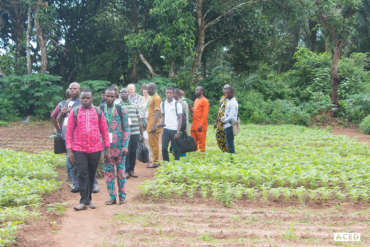Urban gardening offers a viable option to improve diet diversity for the urban poor. Yet, its success rate is particularly dependent on the managerial capacities of urban gardeners to coordinate and organize collective actions for the successful exploitation of the gardens. The calls from governments to organize cooperative structures among farmers seem justified and merits a high priority on agricultural policy agendas.
Although principles of cooperative structures exist, there is no blueprint available that indicates how to start a gardeners’ cooperation. Moreover, these collaborations need to ally with and build on existing social structures of the urban gardeners involved. Our research can contribute to this alignment process by exploring and comparing international standards of prevailing organizations and their functioning among 261 gardeners in two cities in Benin.
We found that a vast majority of urban gardeners are members of a cooperation. Nevertheless, their membership is largely titular because gardeners mostly behave semi-autonomously and few decisions are taken collectively. The obvious economic advantages of leveraging bargaining power, reducing transaction costs, and increasing possibilities for loans are seriously underutilized. We suggest that capacity building can help to develop cooperation among urban gardeners to reach their full potential which, congruently, should also improve the livelihoods of the urban poor.
How to Transition from Cooperations to Cooperatives: A Case Study of the Factors Impacting the Organization of Urban Gardeners in Benin
2019
Download



